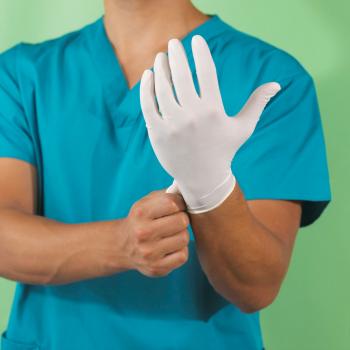
1st responders briefed on state Ebola preparations
About 40 men and women who could be on the front lines if a patient were diagnosed with Ebola in St. Mary Parish attended a meeting Tuesday in Patterson to become better prepared for the fight.
Hosted by the parish Office of Emergency Preparedness, Dr. Tina Stefanski, Region 3 and 4 Office of Public Health medical doctor, discussed what is known about Ebola and plans being set forth in Louisiana to handle the virus.
The meeting was held at the Patterson Area Civic Center.
Duval Arthur, St. Mary Parish Office of Emergency Preparedness director, said the biggest fear is not knowing what Ebola is, so the meeting was designed to better prepare everyone from first responders to funeral home directors.
“Every bit of that, from the start to the finish, is dangerous,” Arthur said concerning patient handling and treatment.
Ebola was first identified in the 1970s, but the current outbreak is the largest in its known history, Stefanski said.
It is believed this outbreak of the Zaire strain began in December 2013 with a young child in Guinea and led to more than 10,000 infections globally with 4,922 deaths, according to the latest estimates by the World Health Organization released Saturday.
Four people in Louisiana are being monitored for the virus, the Times-Picayune reported Tuesday. Three are in the New Orleans area while the fourth is in Baton Rouge, the report stated. All are described as “low risk.”
Stefanski said the virus is not transmitted in air, food or water, and that people must be showing symptoms to transmit the disease. This is because the viral load of patients begins low and increases the longer the disease is present, meaning that the body of a person who dies from the disease is extremely contagious.
The virus can be found in urine, saliva, feces, vomit, sweat and semen, Stefanski said.
There are no approved treatments or vaccines in the Unites States, although some are in various phases of testing.
“That’s really what we need. We need a vaccine,” Stefanski said.
If a person were being monitored in the parish, officials would be notified that the patient is here, but not where he or she is located to avoid the stigma attached, Stefanski said.
Call takers at the parish 911 center have a protocol to check whether a patient is a potential Ebola victim. If there is reason to suspect the person has the proper symptoms and has had contact with someone from or been in one of the affected West African countries, first responders will be notified.
While they will attend the scene to assist, it is Acadian Ambulance that is tasked with actual contact with the sick individual.
Chad Davis, Acadian Ambulance representative, said paramedics are trained to properly use personal protective equipment.
He stressed that moving a patient suspected of having Ebola would be a slow process.
The ambulance service must contact the hospital to let them begin preparing. Meanwhile, paramedics must cover the ambulance in plastic and one of the team must get into the protective gear. The patient will be outfitted with appropriate protective gear, Davis said.
At that point, first responders will be sent home. The patient is moved into the ambulance with one paramedic while the other drives. The driver will notify the hospital upon arrival. The process, Davis said, could take several hours.
“The key is this is slow … the life or death (situation) is yours,” Davis told first responders.
Stefanski said Louisiana has no designated facility to treat Ebola patients, so every hospital must be able to safely care for one. It is likely any patient here would be transferred to a facility in another state once diagnosis is confirmed, she said.
However, that diagnosis could be delayed as much as 72 hours as there is no laboratory in the state that can test for Ebola, Stefanski said.
After death, she noted, there is no direction as to how long a body will remain contagious. The virus can live on surfaces for 24 to 48 hours and for several days in a warm, moist environment, she said.
Medical waste must be transported and incinerated by facilities with special licenses.
Should it become necessary, Stefanski said, the public health department has the legal authority to quarantine and isolate under the state’s sanitary code.
Anyone with questions or concerns about Ebola is encouraged to call 855-LA-EBOLA, a state-run hotline.
- Log in to post comments
